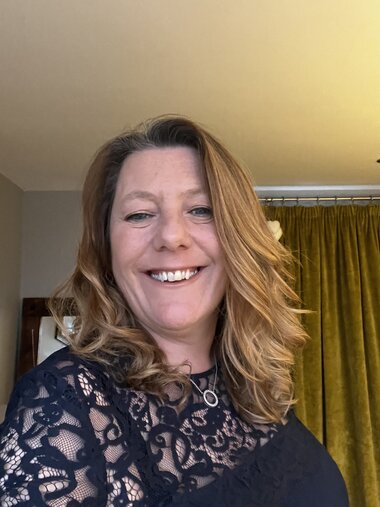28 March 2023
What’s your role at King’s Health Partners (KHP) Haematology?
I am a senior Myeloid Clinical Nurse Specialist at King’s College Hospital NHS Foundation Trust (NHS FT) and the lead for Systemic Anti-Cancer Therapy (SACT) Closer to Home patient and public involvement and engagement (PPI/E) for King’s Health Partners Haematology.
What is Systemic Anti-Cancer Therapy (SACT) Closer to Home project?
The SACT Closer to home project involves:
- Delivering chemotherapy at home or closer to a patient’s home;
- Remote monitoring of long-term haematological conditions via an app and/or virtual multidisciplinary clinics.
The initial phase included discovery and design work to develop different models of care that would enable delivery of SACT either in a patient’s home or closer to their home. The scope included self-administration and intravenous administration of SACT.
During phase one a pilot was successfully delivered at King’s College Hospital for a small cohort of clinically appropriate patients with multiple myeloma to self-administer bortezomib via sub-cutaneous injection at home. This pilot has now transitioned into a business-as-usual model within the Haematology service across both King’s College Hospital NHS FT sites.
One of our patients told us that:
“Having chemo at home has reduced two out of three visits and makes a real difference to my lifestyle."
How have you incorporated PPI/E into this project?
When phase two of the project was being developed we talked about how important it is to have a PPI/E role to feedback during the whole process of project development.
Firstly, we formed a collaborative team across KHP to develop a model where other drugs could be incorporated. We developed a plan for a pilot that would enable us to gain experience and started pulling together a list of interested patients across KHP. Some patients were on drugs we were intending to pilot and some where we would consider in phase three. We hosted an expression of interest group and presented the project to patients to help them decide if they would like to be a part of the group. We were delighted to have 10 patients who agreed to be a part of the group.
As there was a short timeline for project we met every two weeks and reviewed patient information sheets, standard operating procedures (SOPs), and patient videos.
We allowed patients to bring their own ideas to the group and a really successful idea was implementing ‘patient buddies’. When a patient is put onto the SACT pathway they are now asked if they would like a patient buddy to support them if they are feeling nervous at all and would like to talk about others experiences.
Other work has included working with the Cicely Saunders Institute of Palliative Care, Policy & Rehabilitation to run cancer voices.
What has been the outcome?
Overall the outcome has been really positive and we have learnt a lot from the patients involved. The group has evolved and is no longer just a PPI/E group but has also become a patient support group, where there is an understanding of shared experience and empathy.
Patients have fed back that they have really enjoyed being involved in the project and found it therapeutic by feeling they are doing something useful by giving back.
From my perspective I have really enjoyed working with the patients and gained great insight from their lived experiences that I was able to share with the project group. The patient’s perspective and priorities for the project could often be different from the professionals so it was invaluable to understand this.
What’s next for this work?
We are working to recruit more patients to be a part of the group and hope they will continue to be actively involved in the project through the next phases.
Following phase 1 of the pilot at King’s College Hospital NHS FT, phase two has now extended the offer to Guy’s & St Thomas’ NHS FT and Lewisham & Greenwich NHS Trust, and across a wider range of SACT therapies at all Trusts (including Bortezomib, Denosumab, Trastuzumab, Cytarabine and Goserelin).
King’s Health Partners Haematology takes the latest research from bench to bedside, supporting and training healthcare providers to give the very best care to people with blood diseases.





